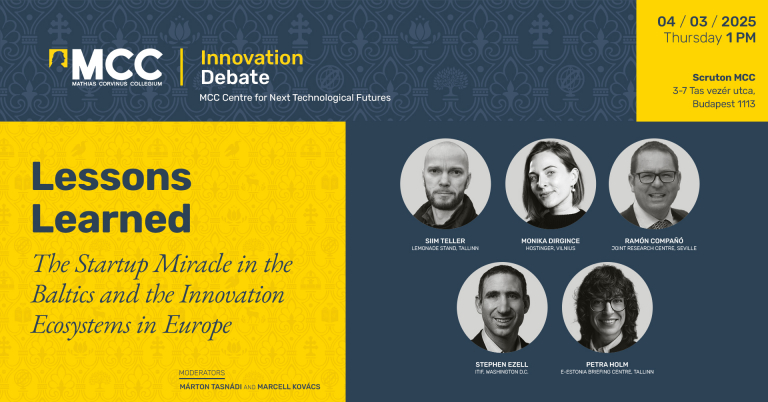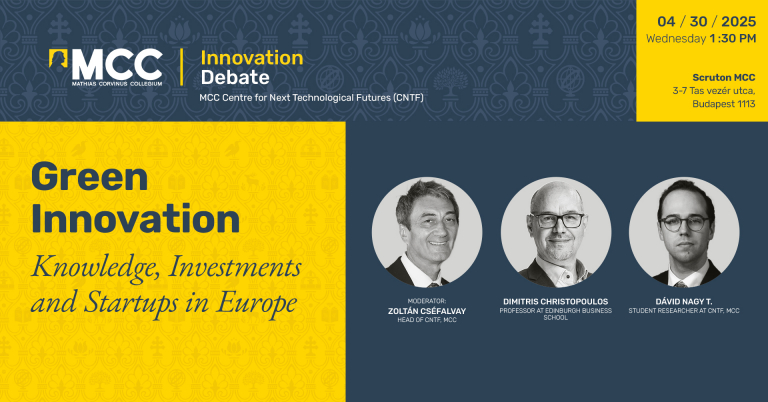In October 2024, students from the MCC Centre for Next Technological Futures (CNTF) travelled to Helsinki, Tallinn, Riga, and Vilnius on a study trip—with more than thirty meetings in eight days—to find the “secret sauce” that has turned the Baltic states into a startup hotspot in Europe. As a follow-up event, we welcome high-ranking policy analysts, successful entrepreneurs, outstanding professors, heads of renowned think tanks, and top researchers from the Baltic States, the US, and Europe to the MCC international symposium “The Baltic Startup Miracle and its Future Challenges” to discuss the future challenges of this miracle.
Therefore, the questions at the heart of this lunchtime debate are:
- How can startups cope with the current summer of artificial intelligence, which promises to become the general-purpose technology of the century?
- How can startups, which today are increasingly based on deep-tech innovation, attract the investment and talent they need from around the world?
- How does the emerging trend towards corporate venture capital and government venture capital influence the future development of startup ecosystems?
- How can small but dynamic ecosystems keep up in a global race with exponentially growing new technologies when this race is increasingly embedded in geopolitical rivalries?
- What lessons can other startup ecosystems learn from the success of the Baltics that will also be relevant for the next decade?
Panellists are:
Laima Balčiūnė (Sunrise Tech Park, Vilnius)
Sean Randolph (Bay Area Council Economic Institute, San Francisco)
Raffaella Tenconi (ADA Economics, London)
Prof. "Iris" Xiaohong Quan (San José State University)
Edgars Stafeckis (Trustlynx, Riga)
Moderators: Csiszár Bence and Sándor Pázmányi (MCC students)
The MCC Innovation Debates are open to MCC students and the general public. The debates are organised by the Centre for Next Technological Futures (https://cntf.mcc.hu) which conducts research and provides education on the emergence of new digital technologies (robotics, big data, artificial intelligence) and their impact on economy, society and geopolitics. Particularly, it focuses on innovation economics, entrepreneurship and startup ecosystems, and recently published its book – “Startups and Robots” – including papers of CNTF’s researchers and students.







